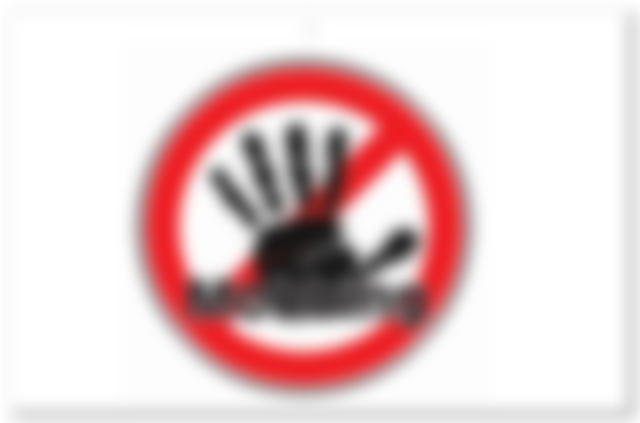Have you ever experienced Mobbing??

When starting a new job, a person takes steps with thoughts such as lots of questions, anxiety, fear of getting used to, and anxiety about success. Or can you imagine the uncertainties when a child is just starting school? Have you ever experienced the feeling of foreignness when you just moved to your street? While people feed these negative feelings, they sometimes expect support. So what do bad people do against their fear instead of support, It's just bullying! Let's come to how we can cope with the pressure of mobbing that we may encounter at every stage of life. Let's deal with mobbing that we may encounter in our business life today.
The concept of mobbing, or mobbing, which has been used for business life since the 1990s; It refers to repetitive and long-term psychological harassment behaviors that are made for a person or group to leave the job. Mobbing, which is a set of systematic and hostile behaviors; It can occur in a wide variety of forms, such as exclusion, humiliation or intimidation, and can occur frequently in almost any workplace.
In particular, job descriptions are unclear and cooperation is weak; In addition to these, intimidation behavior, which is fed by the high competition and workload and the low working conditions, may lead to punishing the person and leaving him alone in the group. Then, with the intervention of the workplace management, which is completely unconscious in this regard or uses the strategy of intimidation for competition, the exposure to psychological violence may increase even more. A person's job-related skills may be negatively evaluated, constantly searched for fault, or criticized for personal characteristics. In addition, the person's reactions to the mobbing behavior are exaggerated or inappropriate, and the person can be described with definitions such as 'paranoid' or 'too sensitive'. In the end, he may be forced to resign from the job or be dismissed by the management due to his already reduced work efficiency.
Causes of Mobbing
The causes of mobbing can vary greatly. Sometimes, mobbing may be used to reduce the performance of the person who is in a better position professionally or to leave the workplace. However, it can sometimes be used by managers to increase employee performance. Employees may be exposed to the constant threat of unemployment and competition with other employees despite doing their job well. Sometimes just for personal reasons, for example; They may use intimidation because the aggressors enjoy these actions or because some group dynamics are desired to remain dominant. E.g; Persistent humiliation and exclusion of the dominant group in the workplace towards those who do not support a certain team has nothing to do with job description or performance. They simply want that group trait to continue as a dominant value.

Mobbing Behaviors
Exemplifying some common mobbing behaviors can make it easier to recognize mobbing when it is encountered:
Using offensive, offensive, or unpleasant language
Using sarcastic voices and nicknames when communicating
Not taking the person's ideas and suggestions seriously
Not helping the person with their problems, not keeping them informed of work-related changes
Moving the person's work area away from other groups, causing harm, keeping the intimidated person away from social activities
Starting gossip to humiliate the person
Constantly criticizing and finding deficient in every job a person does
Making fun of a person's personality or appearance
The Effects of Mobbing on Victims
People may be chosen as victims because of their differences such as age, gender, ethnicity or religion, sometimes because they are inexperienced or successful at work, or because they have positive characteristics that stand out in the group, such as physical attractiveness. Victims may experience one or more of the following effects:
People whose job performance generally decreases due to bullying behavior may see themselves as unsuccessful and inadequate. Even if they describe their work-related skills as part of their identity, they may suffer from this situation; They may begin to doubt themselves. E.g; they may feel the need to check their jobs, which they used to be confident and satisfied with, over and over again. Thinking that they are now unsuccessful in the jobs they were proud to be able to do before can make them unhappy.
Their self-confidence may be damaged, their insecurity may cause a general state of indecision and they may avoid taking responsibility for any issue. On the contrary, they may see themselves as responsible for everything that goes wrong.
They may not want to go to work and so they may start taking time off. They may be dismissed due to long periods of absence from work, or they may resign themselves due to reduced workplace commitment and the problems they experience.
They may show depressive symptoms such as not enjoying life, reluctance, intimidation, and difficulty concentrating.
An increase in stress and, accordingly, activation of the sympathetic nervous system may occur. Heart rate and breathing may accelerate. People can feel very excited and alert at any time.
May experience loss of physical strength, muscle and joint pain; As a result, they may experience chronic fatigue.
They may experience problems with their digestive systems and some eating disorders.
How can we deal with mobbing?
In order to eliminate this problem, which is extremely common in workplaces, solutions produced by legal organizations, unions and individuals are needed. Here, some suggestions that can only be made individually when mobbing is encountered will be given. These recommendations can be divided into three phases:
The first of these is that mobbing behaviors have not yet fully emerged; but it is the stage when some signs appear. It is important to be able to define the indicators of mobbing behavior, which can also be done implicitly here, and to determine what the workplace can do institutionally, in order to decide how to proceed. In addition, drawing the boundaries clearly without acting timidly or aggressively against the mobbing behavior that manifests itself in the form of small interventions and 'jokes' can prevent the growth of this behavior.
It is possible to consider the mobbing behavior becoming visible and settling as the second phase. At this stage, keeping evidence such as e-mails, messages, or testimonies of people who were around at that time in writing, can help both to review the events and to establish evidence against the attacker. While doing these, establishing good relations with the environment, being aware of their legal rights and personal needs rather than being isolated can help one to maintain self-confidence and job performance.
The last stage is when mobbing behaviors and the work environment become unbearable. Even if the experiences are very challenging, it can be reassuring to think that you have control over your own life and know that there are still things you can do to solve the problem. Consulting a specialist for psychological help can help to analyze the situation and solution proposals. As a result, a healthier decision can be taken. In the process, first taking leave from work and then leaving the job after finding a new job, if it is foreseen that the problems will continue, may be a solution. In addition, it may be preferable to resort to legal processes. Finally, living through the emotional and perhaps financial losses experienced throughout this whole process and allocating enough time to this may allow the process to be overcome in a healthier way and a fresh start can be made in the future.



